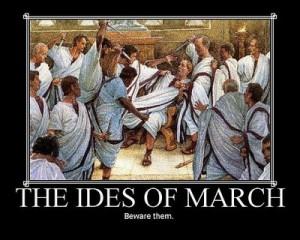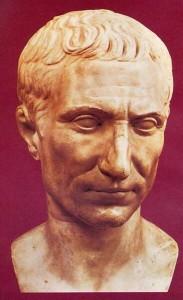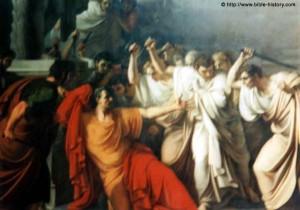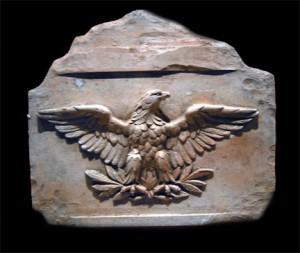There goes William Shakespeare again… causing all sorts of trouble. March 15 was just any other day until Will wrote the play 'The Tragedy of Julius Caesar' where a soothsayer uttered the famous words "Beware the Ides of March", a prophecy of his death.
“Why man, he doth bestride the world like a Colossus and we petty men Walk
under his huge legs, and peep about to find our selves dishonorable Graves.
Men at sometime are Masters of their Fates. The fault (dear Brutus) is not in our Stars,
But in our Selves…” –Cassius Act 1 Scene 2
Julius Caesar is an archetypical figure who represents ultimate power and male virility. His story is well known. One of three senators who led the Roman Republic, he rose to power quickly through his military prowess, and ultimately became “Dictator in Perpetuity”, which crushes the foundation of the
Roman ‘republic”. He is ultimately assassinated by his peers and by his best friend… ’for the Good of Rome’. Despite their ‘noble’ efforts, they kill the man, but not his legacy. The Republic was irrevocably changed, and Caesar’s descendants became emperors who ruled Rome and much of the world for centuries. Gaius Julius Caesar was deified post mortem.
With the many fictional and historical portrayals of Julius Caesar, (including 3 movies and multiple plays revivals of the play world wide) I chose Shakespeare’s. First, although he is epicenter of the play, he appears only in five scenes. It is Marcus Brutus, Caesar’s conflicted best friend, who is the protagonist of the play. “As he was valiant, I honour him; but, as he was ambitious, I slew him”, he proclaimed.
While the plot to assassinate Julius Caesar is the main focus of the play, the figure of Julius Caesar— worshipped, hated, misunderstood, scorned and loved, drives the actions of the others and ultimately it his lineage and ideals that shape the Roman Empire and its conquests for centuries.
Colonia Assoluta by Aqua di Parma ( created in collaboration of Bertrand Duchaufour and Jean Claude Ellena) instantaneously captures the ‘essence’ of Julius Caesar. It is strong, virile and most markedly a man’s fragrance.
Released in 2007, its citrus top notes of Calabrian bergamot and Sicilian lemon are ‘Roman”, with the energetic presence of cardamom and ginger signifying power. The middle notes release aromatic myrtle and mugwort; a heart that is almost unsettling and prevailing. The intense base notes reveal the true character of Colonia Assoluta –leather note creates an aura of virile charisma.
The fragrance is wrapped in spicy, smoky woods: cedarwood, lignum vitae and patchouli with background accents of benzoin and musk which enhance its longevity. But fragance critic Luca
Assoluta is not for”petty men”.
READ A BOOK, WEAR A FRAGRANCE, AND ITS JUST A DAY (throws salt over her shoulder, wears evil eye bracelet )






